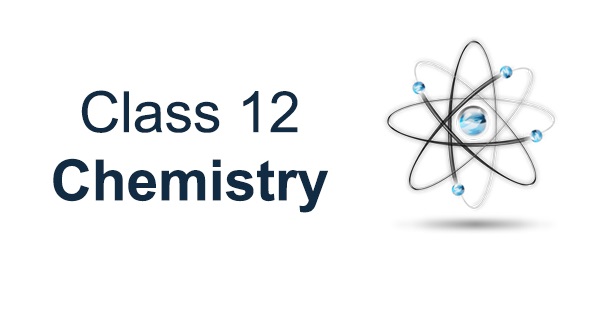Class 12, the final academic year in a student’s life, is important because a lot of important things are emphasized and tested before letting the student into society face greater challenges. Class 12 Chemistry in particular deals with physical chemistry, organic chemistry and inorganic chemistry. This article enlightens you mainly on how to score good marks in your class 12 Chemistry exams.

GENERAL PREPARATION:
1) Start your preparation with the best textbooks to ace your exams. The NCERT Books Class 12 Chemistry developed and published by the Government of India are known to be the best textbooks for this course of the subject. As the NCERT books are known to adhere strictly to the curriculum of present CBSE boards, following this would help students score better marks in their exams. For better understanding, have reference books with you in addition to your main textbooks.
2) Get to know your syllabus well. As class 12 chemistry consists of almost 16 chapters, students should know how to separate them and plan their time accordingly for preparation. The volume of concepts and problems differ from chapter to chapter; hence students are recommended to understand all the chapter’s content and weightage as this will be very useful to draft a perfect study plan during exams.
3) As a matter of fact, the preparation for your class 12 chemistry must be started early as this subject comprises a lot of equations and complex concepts. Starting early will fetch you a lot of time to understand and work out the concepts.
4) Make sure an ample amount of time is assigned for the practice of sample and previous year papers. The CBSE boards are known to follow certain repetitions of particular topics and covering up all the previous year question papers will be a boost up in their preparation. When you practice, make sure you note down the recurring topics, topics with high mark weightage from question papers to improve your scores.
5) Class 12 chemistry is known to comprise both theory and problems, it is suggested that students give optimum time to both sections to ensure success. As for the theory, part students are advised to go through their concepts and make their own notes with all the necessary keywords. On par with the theory, the numerical section also deserves equal time and attention. Practicing as many questions as possible before you appear for your exams as mastering the numerical section, puts you at the advantage of high marks.
TOPIC-WISE TIPS FOR A GOOD SCORE:
1) Sort out the chapters based on their type i.e.,
✔ Physical chemistry ( Solid-state, Electrochemistry, Surface Chemistry, Solutions, Chemical Kinetics).
✔ Inorganic chemistry (p- block Element, d- and f- block Elements (Transitions Elements), General Principle and Process of Isolation of Elements, Coordination Compound)
✔ Organic Chemistry (Organic Compounds Containing Halogen, Alcohol, Phenol & Ether, Aldehydes, Ketones and Carboxylic Acid, Organic Compound Containing Nitrogen (Amines), Polymers Biomolecules, Chemistry in Everyday Life)
2) As far as organic chemistry is concerned, note down all the naming reactions as these areas are easy scoring. Some of the important naming reactions are Clemmensen Reduction reaction, Williamson synthesis, Gattermann Reaction, Finkelstein Reaction, Kolbe’s reaction, Coupling reaction, Sandmeyer reaction, Cannizzaro Reaction, Wurtz – Fittig Reaction. Etc.
Memorize the functional group, reaction name and nomenclature but, never try to mug up any reaction, rather take time and derive every reaction and its subsequent reducing agent. Fundamentals are important in this section, so make sure you have a strong foundation, to begin with. You may be asked to find out or derive the last component from the given question from organic chemistry, hence fathoming the concepts is essential.
Though the volume of organic chemistry is huge, a smart mind map will help you through the bush. Create your chart of reactants, reactions, reducing agents, etc to facilitate a clear way of preparation. Also, prepare the chemical properties of compounds as you study.
3) Have a lot of patience when you step into inorganic chemistry. You will come across numerous reactions in this section, sit back and understand the logic behind the reactions, trying to memorise them will only end up in vain. Try to do selective reading in this section, as it can be overwhelming when read all at once.
4) The physical chemistry part can be the game changer in your exams if you get well versed with your numerical section. Prioritize electrochemistry and solve all problems from the NCERT. Make sure you don’t omit the scoring chapters like electrochemistry, solid-state, kinetics and surface chemistry as these are all considered as scoring subjects. Also, solve all previous year question papers to get familiarized with the question pattern and question types.
5) Finally, do not neglect the small chapters i.e., chemistry in everyday life, polymers, biomolecules as they can fetch you a handful of marks in your 10 marks section. Make sure you read them thoroughly as they are comparatively easy to read and score.
EXAM TIPS:
1) Develop good writing skills, as class 12 chemistry has a lot of theory to present. Make sure you are good at remembering and presenting the key points in your answer sheets. Try highlighting the keywords in your descriptive answers.
2) When writing the reactions from organic chemistry make sure you mention the name of the reaction, reactants, catalyst, reagents to make your answer more clear.
3) Make sure you don’t omit the diagrams (if required) when you present your answers as a clear diagram makes your content more understandable.
4) It is recommended that students do a wise selection of questions. Do not spend more time on long descriptive if you have a choice of attending full scorers (problems, reactions, comparative or difference analysis questions)
5) Time management is an important factor in scoring good marks especially when you get lengthy paper-like chemistry. Practice as many sample papers as possible. Never leave any questions due to lack of time, plan and finish your paper on time.

